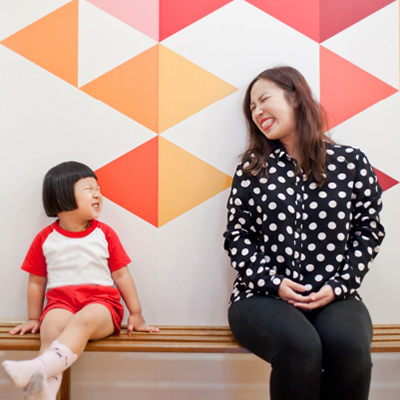
“Just as learning a sport demands years of practice, so does learning to handle life’s setbacks.” – Karen Karbo, Why Being Less Protective Is Better for Your Kids
The world can seem a scary place when you are a small child navigating your surroundings. Stepping outside of your usual environment, discovering something new can feel daunting to children at any age. And for parents, everything can be a reason for feeling anxious and fearful when you just want to know that your child is safe, healthy and happy.
Instinctively, parents want to protect their children, whether that is jumping to their aid when they tumble or planning ahead for a potentially challenging incident that is very likely to lead to distress or disappointment.
But are you so full of fear and anxiety at every stage of your child’s development that you swoop in at the first indication of a mistake or upset because you are so afraid your child will fail or get hurt? Are you a helicopter parent? When you know your child is upset do you find it difficult to simply give them a warm hug and sympathetic words and leave it there? Or is it an opportunity to make a big fuss? Equally, do you micro-manage every aspect of your child’s life, controlling their experiences, even the friends they make?

Over protective parents seek to protect their children from harm, pain, unhappiness, negative experiences, rejection, failure and disappointments.
Just as children are different, parents instinctively demonstrate different styles of parenting, largely based on their own experiences, temperaments and behaviour patterns. (For more about different parenting styles see Positive Discipline: The path to a deeper connection with your child and a more enjoyable way to live.)
Once you have determined your parenting style (Authoritarian, Authoritative, Permissive, Uninvolved) ask yourself the following questions?
- Do you jump in to assist your child at the first sign of failure?
- Do you feel anxious about your child getting dirty or covered in germs?
- Do you constantly surveil your child?
- Do you constantly remove your child from challenging or stressful situations?
- Do you try to control your child’s environment?
- Do you constantly make decisions for your child?
- Do you pressurise your child to succeed and be more successful than their peers?
- Do you micro manage your child’s every move?
- Do you listen – really listen – to your child’s point of view?
- Do you often tell your child you know what is best for them?
The harmful effects of over protection
Research shows that when we do not allow our children time to work through predicaments themselves or experience a gamut of emotions brought about by failure, mishaps or struggling to acquire a new skill, we deprive them of the opportunity to work out how to manage their feelings – and deprive them of their path to autonomy. An over protected young child, when an older child or an adult may:
- demonstrate low self-esteem and self-worth
- lack resilience
- lack self-confidence
- be anxious, even depressed
- avoid taking risks
- be a people pleaser
- frequently seek validation and approval from others
- be a perfectionist because, like their parents, they develop the need to control everything
- develop Narcissistic Personality Disorder
- struggle to form positive healthy relationships, particularly with a partner
- fear rejection and abandonment
- lack authenticity towards others and self
The emphasis here is on the word over! What is important is that you should never feel guilty about caring deeply about the welfare and wellbeing of your child.
Stepping back to watch your child take a risk you know will result in a scraped knee or bruised ego takes courage. If you believe you are being over-protective, try letting go in the knowledge that every experience your child has will help them develop their problem solving skills, creative thinking, independence and the resilience they need to move forward into the wider world.

